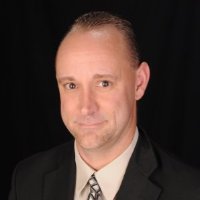 PERSON OF THE WEEK: If you think that the only governmental burden carried by mortgage servicers comes out of Washington, think again. There is a proliferation of municipal code ordinances of unprecedented proportions, and the number is expected to grow wider. To decipher these new codes, MortgageOrb spoke with Lorne DuFour, assistant vice president of code compliance at Mortgage Contracting Services (MCS), based in Tampa, Fla.
PERSON OF THE WEEK: If you think that the only governmental burden carried by mortgage servicers comes out of Washington, think again. There is a proliferation of municipal code ordinances of unprecedented proportions, and the number is expected to grow wider. To decipher these new codes, MortgageOrb spoke with Lorne DuFour, assistant vice president of code compliance at Mortgage Contracting Services (MCS), based in Tampa, Fla.
Q: There seems to be no shortage of local code ordinances in the U.S. Do you have a figure on the total number of local code ordinances that currently exist? And how many are added each year?
DuFour: MCS is currently tracking about 1,100 city-related code ordinances. These ordinances pertain to issues such as boarding, carbon monoxide and smoke detector installation, gate securing, landscaping and inspection regulations. This is not including the more than 650 property registration ordinances also tracked by MCS.
There is no doubt that the number of ordinances passed has increased over the past five to six years; however, we have found that it is not necessarily an issue of new ordinances passing. It has become evident that many municipalities have had these types of ordinances on the books for many years. Due to the deteriorating condition of communities, local governments have felt the need to more strongly enforce their ordinances. The hope is that enforcement of the ordinances will assist with the ultimate goal of protecting and preserving communities.
Q: What are the most common types of ordinances being enacted today, and what is driving their level of ubiquity?
DuFour: Back in 2007-2008, when the foreclosure crisis first hit, we saw the first wave of vacant property registration ordinances come to light. Cities and counties simply wanted to know who was responsible for the maintenance of the property.
As the crisis evolved with many parties learning more about the default process, the vacant property registration process has also evolved. Vacant property registration ordinances turned into property registration ordinances, the difference being vacant property registration ordinances only required the property owner to register all vacant properties, typically after foreclosure sale.
Municipalities found that they were experiencing issues with properties well before they were found to be vacant, thus, the evolution of property registration ordinances. Many ordinances require the servicer to register the property immediately after filing a foreclosure notice, and some of these ordinances even call for occupied properties to be registered.
Q: In your professional opinion, has the proliferation of code ordinances helped to establish some degree of stability in neighborhoods with high foreclosure rates?
DuFour: Communities across the country have benefited as a result of the code ordinances and resulting communication between all parties. Unlike in the past, local code officials now have contacts within the industry that can help resolve newly identified issues quickly.
The proliferation of code ordinances has also resulted in the default servicing community conducting outreach and education programs with city officials so all parties can better understand the default servicing process. When a code officer has a direct line of communication to multiple parties within the industry, the partnership has proven to be extremely effective. By all parties – including local governments, mortgage servicers and field service companies alike – collaborating and working together, we have seen an effort to help stabilize our neighborhoods. Â
Q: How have servicers responded to this growing surplus of code ordinances? And, ultimately, will they be able to keep up with them?
DuFour: Servicers, and in turn, their field service partners, have responded in a variety of ways. Both servicers and field service companies have had to increase staffing significantly in their code compliance departments. Some of the larger servicers have large departments dedicated to completing property registrations, as do their field service companies.Â
In addition, there are many others dedicated to working with municipalities to help resolve code issues. Field service companies, along with their servicer clients, have teamed up to provide a united effort to local governments.
MCS, for example, participates at many of the statewide code enforcement association conferences. Among those are the Florida Association of Code Enforcement, the California Association of Code Enforcement and the national organization, the American Association of Code Enforcement. We also visit many cities throughout the U.S. for one-on-one discussions.Â
Collaboration with these organizations and cities has helped bridge the gap between the default servicing companies and the municipalities, specifically the code compliance and code enforcement departments within local governments. With there being more than 1,700 identified ordinances, the volume is quite hefty to keep up with, even with dozens of employees. The fact remains that there are thousands of cities and counties, each with its own unique ordinance, requiring servicers and field service companies to know the regulations well enough to remain compliant.













